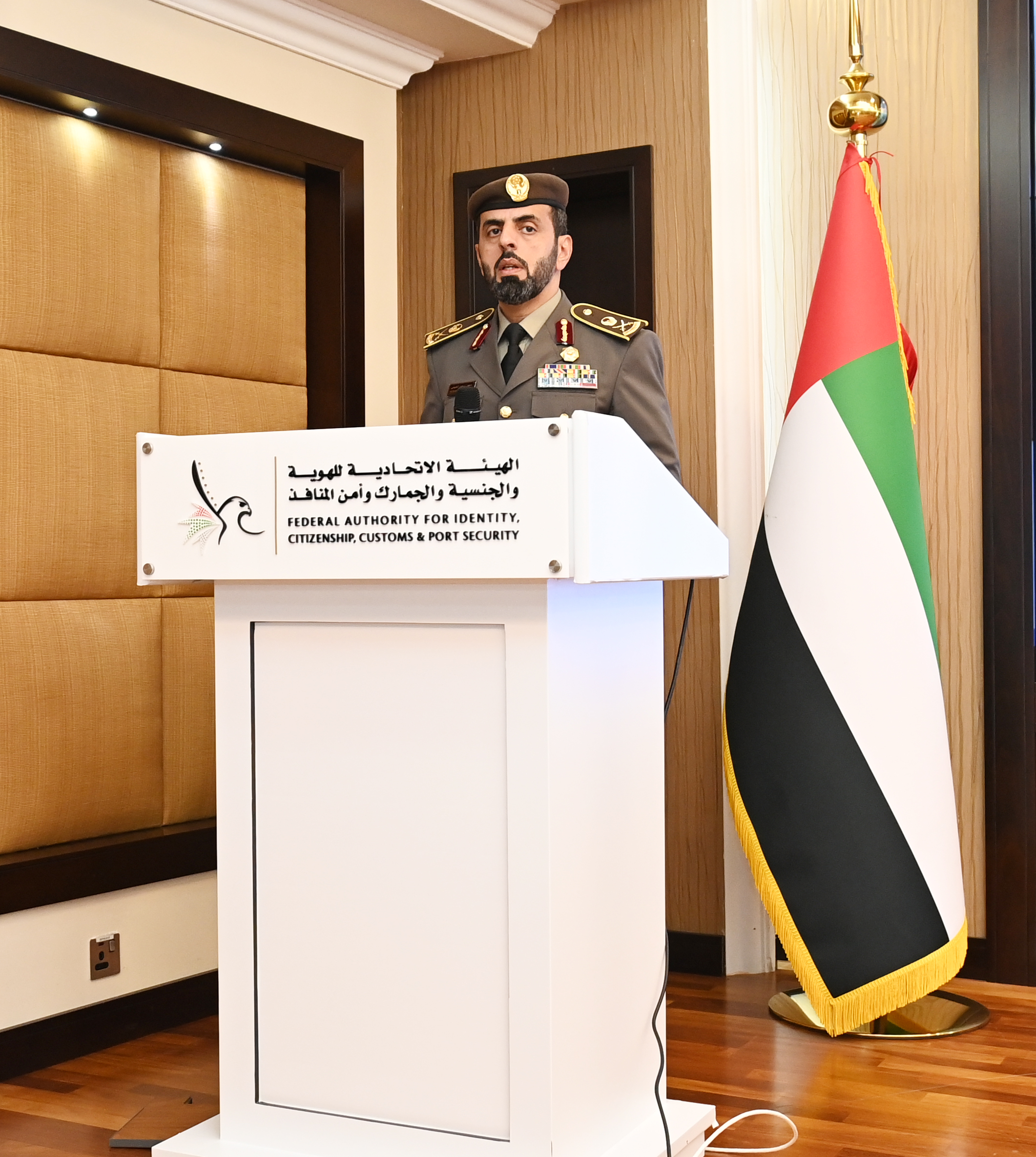His Excellency Dr Engineer Ali Mohamed Al Khouri, Director General of Emirates ID, praised the wise directives of His Highness Lieutenant General Sheikh Saif Bin Zayed Al Nahyan to exempt children under the age of 15 years from the late fees, which keeps their registration optional and aligned to the requirements of UAE government bodies over the next 12 months. This will allow families sufficient time to register their children with Emirates ID.
Dr Al Khouri confirmed that during the next phase, the Board of Trustees will start putting together a working team comprising representatives from the Ministry of Health, local health authorities concerned with the registration of newborns, Ministry of Education and Emirates ID to discuss mechanisms to link the registration of births with Emirates ID registration and to enroll students under the age of I5 years in the Population Register and ID Card.
The time frame set by the Board of Trustees to implement the new fees on Emirates ID services aims to encourage all residents to register and avoid late fees. Emirates ID has also emphasised the importance of registering for the ID card due to its importance, value and benefits.
Final deadline
The Emirates ID Director General called upon on all UAE citizens who have not yet registered in the Population Register and ID Card to make use of the final deadline issued by the Board of Trustees and avoid penalties, by registering before October 31.
Dr Al Khouri said that the total number of UAE nationals remaining to register for Emirates ID does not exceed 100,000 and expressed hope that they will make use of the new deadline and fulfill their national duty.
Overcrowding unlikely
The Director General said that Emirates ID is committed to register the entire UAE population as soon as possible to achieve the objectives of enhancing individual identity, developing an accurate population data that will support decision-making, and providing e-Services based on a secure and integrated infrastructure.
“The population register and the National ID Card are major pillars supporting the UAE Vision 2021 that aspires to place the UAE among the best countries as well as the best five governments around the world,” said Dr Al Khouri.
Ruling out the possibility of overcrowding at the registration centres following the Ministerial Decision No: 25 of 2011, the Director General said that the appointment system has already brought down the average time spent by applicants at the centres to five minutes from the previous 30 minutes. As per the modified registration system, application forms can be filled in any of the more than 1,000 accredited typing offices across the UAE.
The receipt issued to the customer after registering for the ID card will exempt its holder from any late fee provided he/she completes the registration by visiting the centre at the appointed time. The receipt will also allow the holder to complete any government transaction for which the national ID card is accepted as a valid proof of identity.
Dr Al Khouri also urged all expatriates in the UAE to register as early as possible for the ID card irrespective of the validity of their residence visas to avoid the late fee.
Dr Al Khouri commended the decision of the UAE Cabinet to collect the same fee from UAE nationals and citizens of Gulf Co-Operation Council countries, noting that the step was the first of its kind in the region.
The Cabinet’s decision to exempt those covered by Social Security, the disabled people and those with autism from the registration fees was also praised by the Director General. However, he reminded that the exemption is applicable only to the charges and that registration for ID card and Population Register is compulsory for all.
Regarding exemptions from late fees, Dr Al Khouri noted that the resolution of the Board of Trustees authorises the Vice Chairman to examine such cases on the basis of criteria determined by him in co-ordination with the Ministry of Finance. Emirates ID will deal with such requests on a case by case basis, he added.
Sufficient notice
Emirates ID has stated that the deadline set for UAE nationals to register for the ID card gives sufficient time to complete the procedure before the late fee becomes effective on November 1, 2011. The first phase of the registration is completed by filling in the registration form through the typing offices located across the UAE or through the Emirates ID website. The online service will be launched shortly.
The decision to enforce the late fee came after a series of deadlines issued by the Cabinet for the entire UAE population since 2007, the most recent of which were June 30, 2011 for nationals, and December 31, 2010 for residents.
The deadlines and the decisions taken in this regard reinforce the fact that such measures are intended to encourage registrations, and to successfully complete the Population Register and National Identity Card project.
Emirates ID said that that for more than two years now the Authority has been urging all Federal and local government departments, semi-government agencies, executive boards and other bodies concerned, as well as the private sector, to encourage UAE nationals to register and use the ID card for identity verification as well as link the transactions of these organisations to the ID card.
Time line effective
Emirates ID has also urged all expatriate residents in the UAE to comply with the schedule specified by the Board of Trustees for registering in the Population Register and ID Card programme in each emirate and avoid late fee payments.
Emirates ID also reminded residents of the Ministerial Decision, which bans accepting, using or treating any resident as an employee, agent, student or in any other capacity, unless he/she obtains an ID card. Emirates ID will co-ordinate with all government bodies in the UAE to implement the ban through a mechanism which will be rolled out in phases, and as per the timelines for completing the registration in the different emirates.
Emirates ID explained that the decision to start implementing the late fee in the Northern Emirates as the first phase was made after taking into consideration the population density and the fewer number of people to be registered in these emirates. The phased implementation will allow the registration to be completed as per schedule.
Latest Posts

Identity and Citizenship: Less than 00 days left until the deadline for settling the status of violators

The Emirates Academy for Science and Training Receives the 11th Batch of Students

ICP Marks the International Law Day

“ FEDERAL AUTHORITY FOR IDENTITY, CITIZENSHIP” celebrated the graduation of students from the “Emirates Academy for Science and Training.”

ICP Concludes the Events of the Authority Head’s Shooting Tournament at Police Sports and Shooting Club in Ajman






Rate your experience